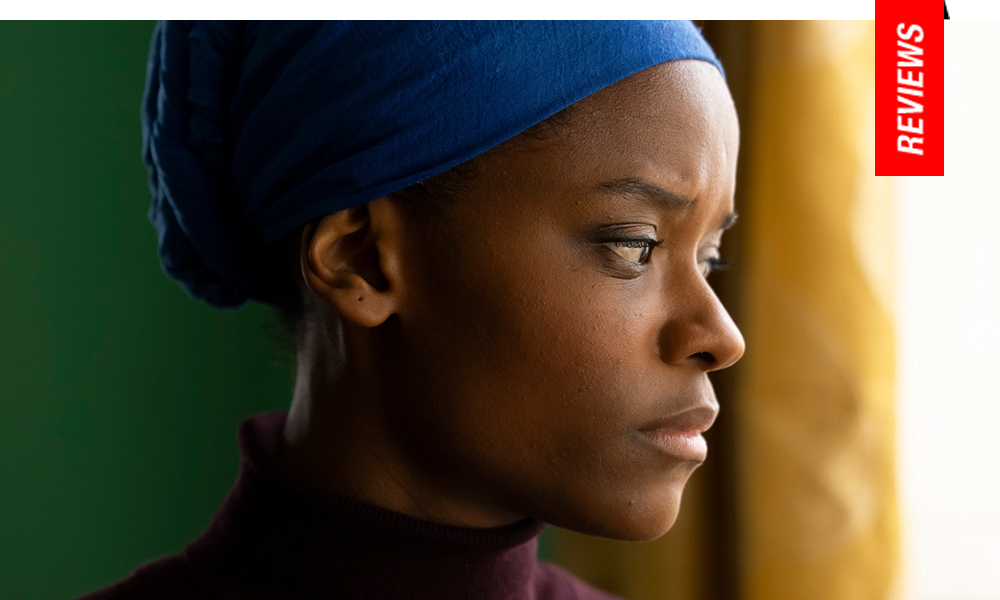No Safe Havens: Letitia Wright’s Breathtaking Refugee Turn
In her role as Aisha, the devastatingly resilient Wright is caught in a cycle fueled by bureaucratic impotence akin to Akira Kurosawa’s Ikiru or Ken Loach’s I, Daniel Blake. After the murder of her father and brother, she flees Nigeria for Ireland, hoping to earn enough there to help her mother join her—but her new home offers no safe haven. As one of countless forcibly displaced immigrants, she is thrust into a byzantine immigration system where hopes are dashed and destitution hovers. Her only ally is the heartbreakingly egoless Conor, an Irish security guard with a traumatic past of his own—and an accent so effective it warrants subtitles—who understands her pain. As viewers, we care deeply for both of them, and yearn for their relief—but Aisha never strays from its narrative just to ease our discomfort.
This film makes it hard to remember we’re watching fiction. Tom Comerford’s understated cinematography achieves lived-in naturalism: claustrophobic office, bus and hotel interiors feel like prison; austere landscapes of emerald braes would dazzle if not for their overwhelming evocation of loneliness. Ironically, this dedication to immersion is so effective that Daragh O’Toole’s score feels sadly predictable. The music is bittersweet and remarkably varied (African drums stand out), but feels at odds with Berry’s Kafkaesque realism; at its worst, the score tells us how to feel, an unwelcome reminder that we’re watching a movie. Happily, Aisha’s most powerful moments come wisely devoid of music, relying on sheer performance to deliver emotional gut-punches.
And what emotionally-charged performances they are. Wright’s perceptive silences speak volumes: grace and resolve in the face of daily microaggressions and lifelong trauma. O’Connor’s vulnerability gives Wright room to shine as an actor, and Aisha room to unmask. When she finally lets go, it’s a lightning bolt straight into the viewer’s heart. This life journey doesn’t want to be a ‘movie,’ or even a ‘film. By evading histrionics and melodrama, by leaving room for unvarnished honesty, Aisha occupies a world very close to our own fraught reality. Those who long for levity are missing the point: this is not meant to be a palatable experience, a flight of fancy; it’s an intentionally suffocating, Sisyphean reality-check that barely scratches the surface of a terrible truth. Aisha joins a growing cadre of immigrant-driven post-neorealist cinema that demands empathy where it is not being offered in real life.
Reviewed on June 19th at the 2022 Tribeca Film Festival – Spotlight Narrative section. 94 Mins.
★★★★/☆☆☆☆☆
